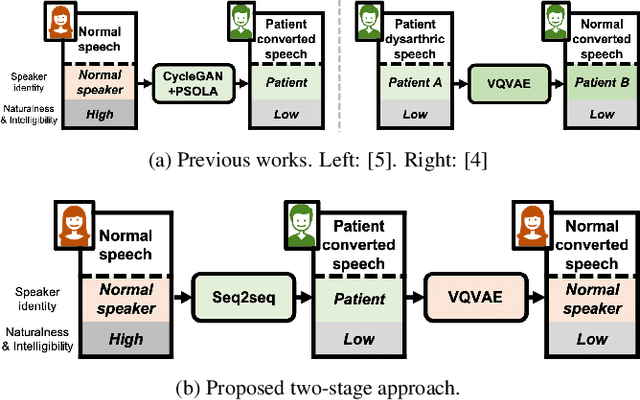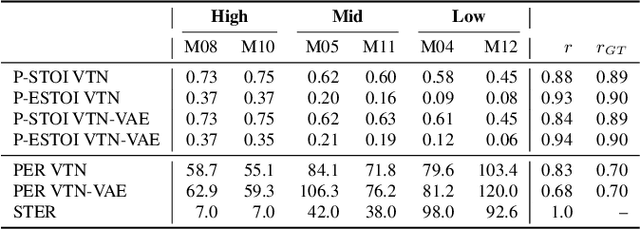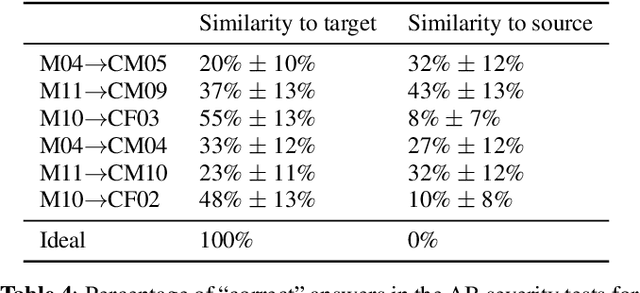Towards Identity Preserving Normal to Dysarthric Voice Conversion
Paper and Code
Oct 15, 2021



We present a voice conversion framework that converts normal speech into dysarthric speech while preserving the speaker identity. Such a framework is essential for (1) clinical decision making processes and alleviation of patient stress, (2) data augmentation for dysarthric speech recognition. This is an especially challenging task since the converted samples should capture the severity of dysarthric speech while being highly natural and possessing the speaker identity of the normal speaker. To this end, we adopted a two-stage framework, which consists of a sequence-to-sequence model and a nonparallel frame-wise model. Objective and subjective evaluations were conducted on the UASpeech dataset, and results showed that the method was able to yield reasonable naturalness and capture severity aspects of the pathological speech. On the other hand, the similarity to the normal source speaker's voice was limited and requires further improvements.
 Add to Chrome
Add to Chrome Add to Firefox
Add to Firefox Add to Edge
Add to Edge